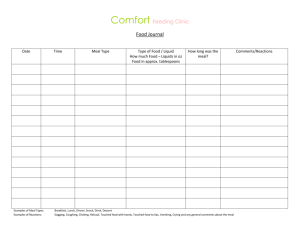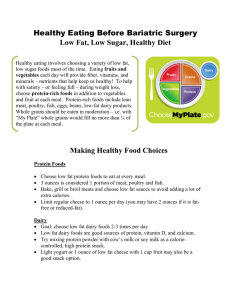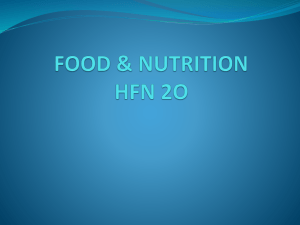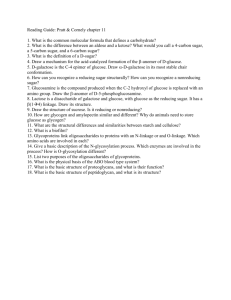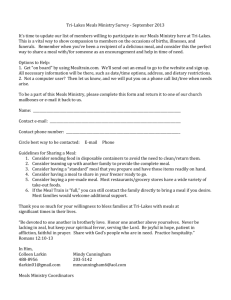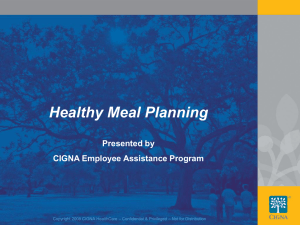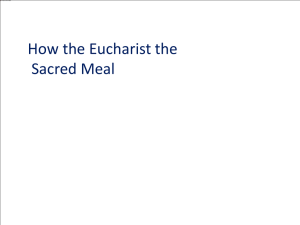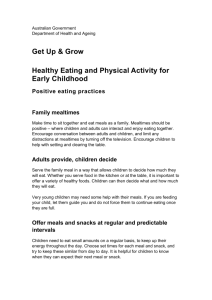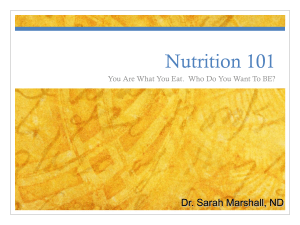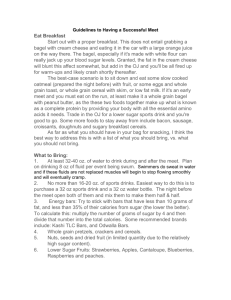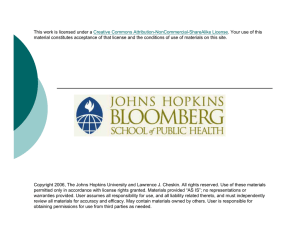GUIDELINES FOR NO CONCENTRATED SWEETS
advertisement
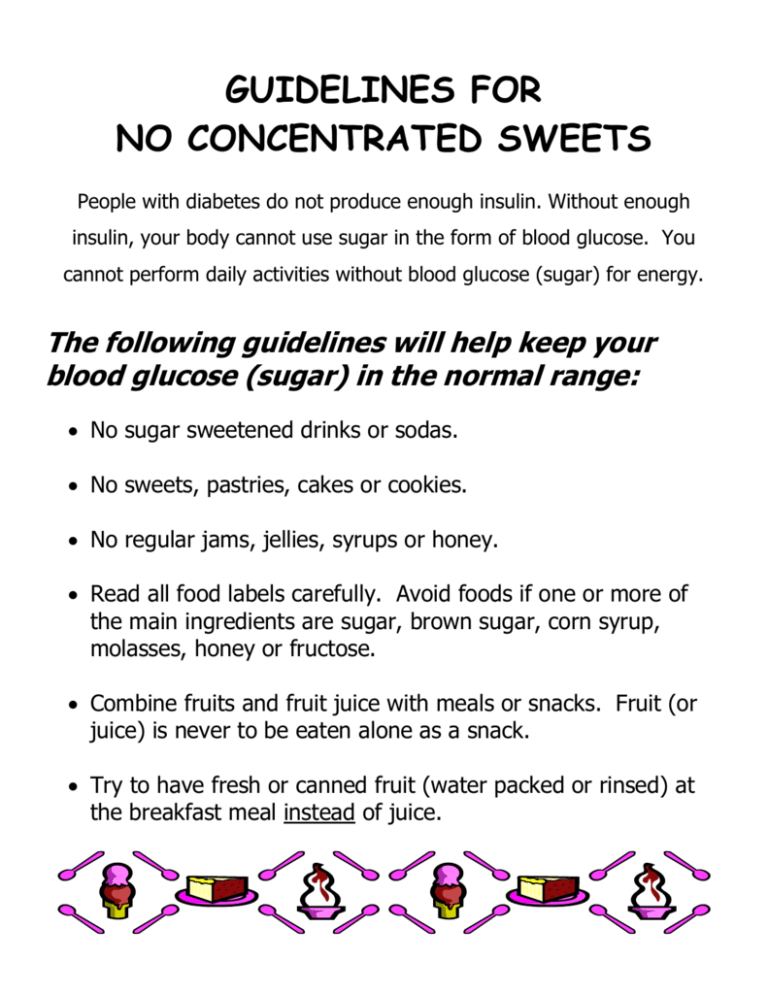
GUIDELINES FOR NO CONCENTRATED SWEETS People with diabetes do not produce enough insulin. Without enough insulin, your body cannot use sugar in the form of blood glucose. You cannot perform daily activities without blood glucose (sugar) for energy. The following guidelines will help keep your blood glucose (sugar) in the normal range: No sugar sweetened drinks or sodas. No sweets, pastries, cakes or cookies. No regular jams, jellies, syrups or honey. Read all food labels carefully. Avoid foods if one or more of the main ingredients are sugar, brown sugar, corn syrup, molasses, honey or fructose. Combine fruits and fruit juice with meals or snacks. Fruit (or juice) is never to be eaten alone as a snack. Try to have fresh or canned fruit (water packed or rinsed) at the breakfast meal instead of juice. GUIDELINES FOR NO CONCENTRATED SWEETS Other meal planning suggestions: Eat at least 3 meals a day, at regular times each day, with a small snack before bedtime. Do not skip meals. If you do miss a meal or snack, do not overeat at next meal. The MAXIMUM time between meals should not be greater than 5 hours. Combine protein and starch at each meal. Each meal should be nutritionally balanced. Avoid foods high in fat, cholesterol and sodium (salt). Use low fat (1% fat) or nonfat milk. Avoid fried foods; instead bake, broil, grill or roast. Choose lean meats (skinless chicken or turkey) and trim away any visible fat before cooking.
